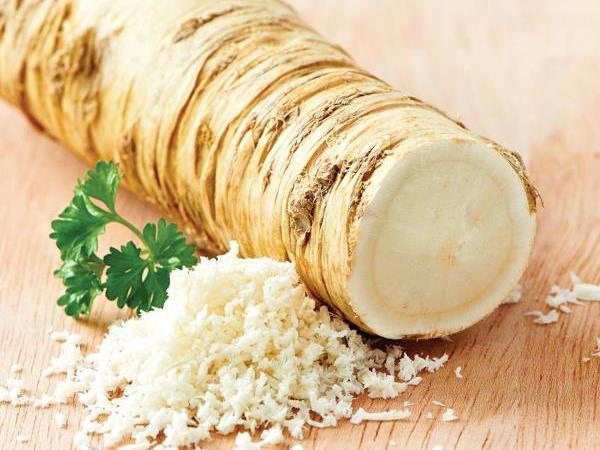Horseradish is quite an unusual food. Almost seasonal, we could say. During holidays (especially Easter), consumption increases significantly, while on other days it is so rare on our menu that we could almost forget about it. But we shouldn't, because fresh horseradish is rich in vitamin C, calcium, potassium, magnesium, and essential oils. It is especially welcome as an addition to heavy meals because it stimulates digestion, particularly the secretion of gastric and intestinal juices.
The healing properties of horseradish have been known for centuries. People used it mainly to prevent the flu and cold, believing that its aroma has medicinal effects. Modern science has confirmed this. Horseradish causes the production of mucus, which soothes coughs and alleviates symptoms of throat and sinus inflammations.
You can enhance the effectiveness of horseradish by adding grated horseradish to warm milk and also adding a teaspoon of honey.
When it comes to horseradish, it is important to keep it stored in a paper bag for no longer than 7 days. If you want to store it for a longer period, cut it into smaller pieces and put them in the freezer. Under no circumstances should you cook horseradish, as this will cause it to lose all its nutritional properties.
Datum: 20. FEB 25 - GOOD TO KNOW
Horseradish against the flu and cold
Horseradish root is a popular addition to dishes, and considering its medicinal effects, it is underused.
(FW)
 Would you like to be informed about news on the website?
Would you like to be informed about news on the website?
Just enter your e-mail
Horseradish flu prevention
Medicinal effects of horseradish
Horseradish health benefits
Horseradish recipes
Horseradish storage tips
|
Copyright (c) Foodwhisper.com March 2018 |
π | Contact: info@foodwhisper.com |
About us | Facebook |  |









